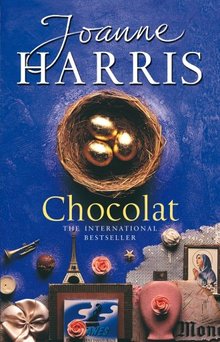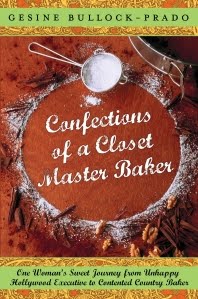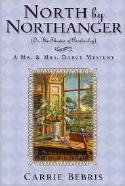Vianne Rocher and her daughter Anouk move into tiny, drab, sober, religious Lansquenet on Mardi Gras. Vianne decides that her services are needed in this village, and sets up a chocolate shop, La Praline. Because the world that Harris has set up is a magical one, Vianne is possessed with the ability to know each of the villagers’ Favorites, and fairly quickly wins not only customers, but loyal friends. This rankles the village priest, Pere Reynaud, who is hell-bent on keeping his flock in what he determines is a straight line.
It sounds like a greater conflict than it really is. The chapters alternate between Vianne and Reynaud narrating, and by the end of the book, neither one is reliable as a narrator. Reynaud is despicable as a priest, more set on his right way rather than actually being a Christian. Vianne, on the other hand, is more set on finding the path of happiness through indulgence and freedom of desire, whatever the cost. The book sets the Church up as wrong and oppressive, and Vianne as right and the way to true happiness. This isn’t entirely bad, since Vianne does some admirable things — things that a priest should have done — while in town. However, it gets to the point where Vianne is actively working against Reynaud, fool that he is, provoking him in ways that are unfair and ultimately unnecessary. The moral center, the “true” story, is somewhere in between the two narrators, centering in minor characters and marginal situations. It makes sometimes for an unsettling book.
While the writing is captivating at times, it often feels like there are too many French names, and not enough lush description. There are the names, but the smells, the textures, the tastes of the chocolate, are missing. Harris does delve into sensory writing at times, but not enough to make the book truly soar.
Rated: Moderate. Language includes two or three uses of strong language; one non-explicit sex scene.




